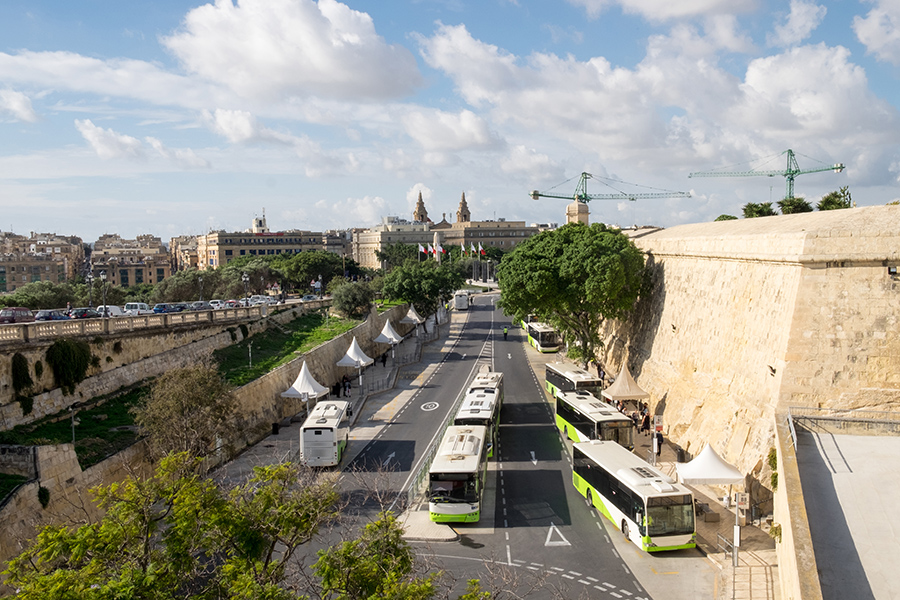Jerome Caruana Cilia – Shadow Minister for the Economy and Enterprise
An increasing number of families are struggling with rising costs, overstretched services and stagnant wages. And in today’s world – marked by geopolitical uncertainty, rapid technological change, and intensifying global competition – that kind of resilience, on its own, is no longer enough. We cannot afford to be complacent.
The recently launched Malta Vision 2050 sets out a bold ambition: to create a high-value, innovation-driven economy that delivers long-term prosperity and improved quality of life. As a forward-looking Opposition, we welcome the fact that government has set out some major ambitions for this country. But let us be clear – this vision will mean little unless it is followed by tangible, coordinated, and immediate action that addresses the urgent problems Maltese people and businesses face today.
A vision is only as valuable as its execution. And Malta can no longer afford long-term plans that sit on a shelf, disconnected from the daily reality of people’s lives. A degree of scepticism is perhaps natural having heard repeated strategies and roadmaps – but rarely the follow-through needed to make these goals real. Meanwhile, Malta’s economic and social foundations are under strain. Thousands are grappling with a persistent cost-of-living crisis, our infrastructure is buckling under the weight of rapid population growth, and key institutions are suffering from
neglect and mistrust.
We are encouraged that Vision 2050 includes several proposals the Opposition has long advocated – particularly the need for measurable milestones and a focus on long-term sustainability. But we must also be honest: Malta’s current challenges cannot be postponed to 2030 or 2040. They demand urgent attention in 2025.
Infrastructure must keep pace
Economic growth and infrastructure must go hand in hand. But today, Malta’s roads are congested, public transport is nowhere near enough, and our healthcare and education systems are overstretched. These are not future risks – they are present-day barriers to investment and quality of life. In the financial services sector, for instance, stakeholders frequently cite bureaucratic delays and poor coordination between agencies. Malta aims to be a digital finance leader, yet public digital infrastructure often trails behind the private sector. Systems remain disconnected, and licensing and compliance processes are too often opaque. In a global economy that prizes trust, speed, and transparency, this inefficiency is unacceptable.
Reputation and governance matter
Malta has made progress – such as its exit from the FATF grey list – but reputational concerns persist. International rankings on transparency and corruption remain worryingly low, affecting everything from foreign investment to tourism and financial services. Governance should no longer be treated as a box-ticking exercise. Strong institutions, independent regulators, and a culture of accountability are not abstract ideals – they are foundations
of lasting prosperity.
We must also pay attention to what is happening in Washington, Brussels, Strasbourg and other such fora. The shifting global tax landscape also warrants attention. Malta’s competitive corporate tax model has underpinned our economic success, but with OECD reforms and EU scrutiny on the rise, uncertainty is growing. We need a serious national dialogue on how to preserve our competitiveness while meeting international obligations. Investors need clarity – and so far, government has failed to provide it.
From vision to accountability
We support the aspirations outlined in Vision 2050. But aspirations alone will not fix roads, reduce queues at health centres, or ease grocery bills. The country needs deliverables, measurable progress, and transparency. That means clear timelines, performance indicators, and regular public reporting – not vague rhetoric, but concrete actions and outcomes. National strategies should not be drafted behind closed doors but developed with input from stakeholders across politics, industry, and civil society.
The Nationalist Party is committed to working constructively – because economic renewal must be a shared national goal, not a partisan one. We want Vision 2050 to succeed. But we will also ensure that government is held accountable every step of the way.
Malta deserves more than promises. It deserves leadership that acts in the public interest, plans beyond the next election, and listens to the people it serves. Let Vision 2050 be more than a brochure. Let it be the turning point where Malta shifts from words to action – for the common good and for a better future.


